I watch possibly
too much TV, especially drama, these days. But 2013 was a great year for drama. I've seen a lot of roundups of best things to watch last year, though I haven't watched everything. (Breaking Bad? Not on the BBC, so...) Here's my thoughts on the best things I've personally seen. Starting with..
Best Crime Series
Was it just me, or is there more crime dramas - and detective dramas - than ever? Not that I'm complaining (most of the books I read too tend to be crime-ish now, or sci-fi, and I guess the telly I watch reflects that too.)
Broadchurch
No list on 2013 is complete without
Broadchurch
on it. Even from the start I loved it - the acting, the cast, the
cinematography, even the writing (Chris Chibnall's far better at
'realistic' drama than spaceships and swords, it seems). Really lives up
to the hype - even the electrifying ending (which I didn't guess - even
if many other people did!). Blogged about it
here. Curiously, my mum thought it was too slow and boring, but she's wrong.
Top of the Lake
Slightly too highbrow, too arty, with
lots of intelligible New Zealand locals (almost needs subtitles!) and
little exposition. This was yet another slightly grim crime series, but
head and shoulders above the rest in terms of gorgeous scenery, dark
crazy themes, and mysterious storytelling, and great twists. I really
got into it by the end.
Endeavour
Very classy, very pretty and captivating mysteries. I've never seen the
original Morse series (though I've started reading the books) - this came
first, and it's a series of very good mysteries.
The Great Train Robbery
Quite
slow and meandering, but a fine reenactment of the robbery and the
police side of things from 50 years ago. It's very classy (CSI 1963!
super) but gripping and very nicely done.
Also worth mentioning: Ripper Street (most of it's two series aired this year - strong Victorian cop show), What Remains (very suspenseful mystery, unashamedly
contrived, with loveably bonkers final scenes), The Fall (grim serial killer drama, classy as hell). ITV's Poirot/Marple serials (generally well done, EIGHT new ones this year! - and I've caught up on a few old ones. Curtain and Endless Night particularly were amazing). Swedish crime dramaseries Arne Dahl (good, overblown long thrillers with good character development), Luther (returning, looking pretty and well told - I caught up with series one too, the first
ever episode is a masterpiece), Scott and Bailey, Father Brown (cosy short mysteries), Mayday.
Best Unrelentingly Bleak Series
An extra category - and I'm not counting Broadchurch in it, cos even that had some humour in it. These ones didn't.
The Village
Very
bleak and depressing (I sense a theme here..), but very well told and
shot. One of those lovely epic dramas, but set in a rural Northern
village from a hundred years ago.
At times, at it's best, it's very moving, and very special.
The Returned
A
French series about zombies... wait, come back! This wasn't
really about zombies at all (apart from the odd bit of cannibalism),
more like ghosts - as four or five dead people return to a quiet village
and unsettle their grieving loved ones. Why are they there? Your guess
is as good as mine - but aside from getting very few answers this year,
this show just oozed a classy, eerie atmosphere and suspense. (Alright -
it was slow!)
Also worth mentioning: Top of the Lake and The Fall (see above), and The Mill (fine period drama from C4, in all its grubby authenticity).
Best Series I Often Found Frustrating
But there's also some really good TV
shows that I loved... well, after a while. At first they rather
irritated me. There's a new trend for the confusing, filmic, muttery
drama series, and here's some of them that - whilst being excellent -
took me some time to warm to.
The White Queen
Lavish
as ever - I loved the first episode's containedness, gorgeousness and
great plot, but then it suffered under the following two or three
episodes of rushed historical events, muttered exposition and a cast of
thousands. For a while I hated it - but by the end of the series it
calmed down into a smoother, much better watch. Don't read up on the
history if you don't want to know what happens, even though it helps you
to follow the plot, as it's pretty accurate actually, depicting the end
bits of the War of the Roses, and the reign of Richard III. It's just a shame history wasn't a bit more... simple.
Peaky Blinders
BBC
Two's lovely gangster drama set in 1919, up north, to the sound of the
coolest rock songs and arty visuals. Another one of these shows without
much exposition, and an unconventional plot, so I thought it a bit
mystifying at first, but go along with it, if only for the ride. Or something.
Dancing on the Edge
Started off slow (a ninety minute opening episode, too), but a great cast, oozing class and quality like
The Hour
(much missed), and jazz songs you wouldn't realise weren't authentic.
But I did find it odd - stuff happening, but not much depth or subtlety -
or mystery, by the end of it.
Frustrating to watch at times,
with the plot too, but glossy and memorable. (There's also an extra,
very odd 'documentary' episode!)
Also worth mentioning: Top of the Lake (there's a running theme to this), Burton and Taylor (muttery, but with really good casting... even if I've never seen them in real life much to compare them to!), The Great Gatsby (the film - although the book was quite hard 'to get'. I wrote about them here - but yes, an odd film to love)
Best New Sci-Fi/Fantasy Series
Orphan Black
A
very intriguing import, about a woman who discovers there's other
people who look like her. Sounds a bit crazy - it's a sci-fi (ish)
thriller - but it plays differently to how you'd expect, in that it's
actually very very fun. Tatiana Maslay as the clones deserves every
award going, as I kept having to remind myself that these characters
were all played by the same actor. Really really lovely.
Utopia
Again, only technically sci-fi. Super
stylish, hyper realistic and very awesome... and very disturbing! This
was gripping from the start - a conspiracy, comic-booky drama, with
violent assassins and... well, I'm doing it a disservice. Like nothing
else this year, highly recommended -
and it's coming back.
In the Flesh
After
Being Human, BBC Three
aired
a zombie drama... wait, come back! This was completely different to
your usual horror, actually being a self-confessed rural kitchen-sink
drama exploring what it's like to be dead. The gradually unfolding main
character and situation is what made it - the first episode's slow, but
it improved into something really special.
Also worth mentioning: The Returned (see above), Neverwhere (not
telly, but epic radio drama with one of the best casts ever, and best
stories too. Basically, incredible - and I've never experienced the originals), Agents of Shield was alright superhero-ish action fluff.And of course returning stuff like Doctor Who - but more on that later.
Best (Other) New Series
The best of the rest (alright, I can't think of any more categories!).
Frankie
The complete opposite
to most of these - a light, breezy antidote to the violence and
misery on this list. But it's also a very well made series, about a district
nurse played loveably by Eve Myles. It's not all sweetness and light though -
there's a stalker, relationship problems, and obviously, death. The plot's
good, and it's miles better than anything similar on ITV.
The Americans
An
American show - a slow paced, tense spy series, about a pair of Russian
spies posing undercover in 1981 as a typical all American family. It's a
great, solid and rewarding watch - no huge explosive set-pieces or secret volcano
lairs, but pure drama with a good cast.
The Escape Artist
Another one
of these BBC mini-series: this one, starring David Tennant as a lawyer,
was an economical, solid, effortless thriller, with a great twist of a
final episode. And just a cut above most dramas.
Privates
Odd title - it's a BBC daytime drama shown last January about 1960s
conscripts to National Service. But it's a lovely series, with unfamiliar
actors (well, except
Alex Vlahos), and
juggles the plots and themes superbly over the five episodes, to keep you
watching.
Also worth mentioning: I discovered Borgen, easily the best Danish political soap I've seen this year. The Wrong Mans (fine thrilling drama, with laughs). CBBC's documentary 'I am Ethan' (top notch - and Who related). Lucy Worsley's A Very British Murder (very enjoyable, about the history of crime solving!). Irish gangster drama Love/Hate (shown on 5 - action packed, pretty darn good), The Wipers Times (an excellent period piece, despite being overly long, packed with humour and cynicism), The Whale, Gangsta Granny. And The Tractate Middoth and The Thirteenth Tale were two very good ghost stories shown at Christmas.
Best Returning Series
A second series (or even more) is often hard to do. But these shows kept the quality up this year in my opinion...
Call the Midwife/Last Tango in Halifax
A second series
can be tough - more of the same, especially as the first series is often
hailed as the best thing since sliced bread. But these two series -
both real hits, both which I loved the first time around - came back
with the same quality, the same cast too, and really stunning telly.
Call the Midwife made me weep with the always painful abortion sequence, pre-watershed (no blood, but intercut with bright red nail polish...)
Last Tango developed the characters realistically and showed the wedding of the year, as well as the best acting, writing, directing, etc...
Wolfblood
A
great set of 13 new episodes gave us our old Wolfblood gang back, plus
new characters and expanded the characters and the world they lived in. A
very strong, realistic serial with heart and - wait for it - bite. I
also watched back the whole of the first series from last year when it
was repeated on BBC Three!
Wizards Vs Aliens
The
first series was alright, if small and sometimes too silly - the second
really knocked it out the park though with its risk-taking stories.
The Thirteenth Floor
in particular is a fantastic adventure with bold twists, and the finale
is amazing. But all the stories were good, ranging from high comedy to
tragedy - between this and
Wolfblood, it's breaking the boundaries of traditionally 'children's telly' (And
Young Dracula too, not on this year).
Also worth mentioning: The Sparticle Mystery (another great children's series - a
fantasy drama with all child actors, trying to find the adults - great
old-school, watchable fun, like playing in the woods). Final series of Being Human (great ending to the show, revitalised for the final stretch -
especially with Phil Davis, and also Kate Bracken) and Misfits (much improved on last year's also). Black Mirror (executed perfectly, most of them), The Paradise (still lovely, with glorious design and over-acting). Doc Martin (consistently light and funny - don't be snobby). And Horrible Histories - very very amusing and brilliant as ever
Best Bit of Doctor Who
An odd year for
Doctor Who - but a good one
on the whole, with an eight episode series (also called, just, a series)
and two specials. The one in November,
The Day of the Doctor, was superb - as were highlights like
The Crimson Horror and
The Bells of St John. Let's not mention some of the episodes though, nor the Doctor or Clara's character development...
However there was also two star highlights of the year elsewhere:
An Adventure in Space and Time
A
one off drama, completely different to Doctor Who, about its origins.
I'd heard a lot about the drama and the history behind it already
throughout the year - it's beautiful, absolutely magical. David Bradley
is (was?) William Hartnell, and Mark Gatiss skilfully compressed an awful lot into 90 minutes. It's almost perfect.
The Five(ish) Doctors
Pretty
much as good as the Doctor Who anniversary special, but a comedy, and
with a tenth of the budget (probably). Star studded, bloody hysterical,
one of the best things ever.
Best Show I Watched from Years Ago
State of Play
One of the best TV series ever, quite possibly? A perfect storm of
conspiracies, politics, journalism and mystery - if a little too long (six hours). It's also got a now
A-list cast, including John Simm, David Morrissey and Bill Nighy.
Casanova
This reminded me how much I love Russell T Davies - it screams 2005 Doctor
Who with David Tennant and the music and the fun, fast cutting. And it does that trick of making you
laugh and cry at the same time.
Also: Finally saw Ashes to Ashes after only seeing the final one-and-a-half series (just as good as Life on Mars, perhaps better). Danger UXB (a very thrilling old wartime series). The original Pride and Prejudice (I read the book first, too, the BBC series is marvellous), Margaret (the Thatcher drama that is all about politics, with a fine cast), Land Girls (a strong series from a few years back, soap style), Eric and Ernie (accomplished and infectious - no wonder it won a Bafta). And as a family we've been watching Bergerac (the crime drama set - mostly - on Jersey. we've seen all of it now, it's mostly really good).
I didn't watch that many films this year, certainly not at the cinema - but I did see
Alien,
Avengers Assemble,
Scott Pilgrim VS the World, Brideshead Revisited,
Attack the Block, Young Sherlock Holmes, A Field in England, Indiana Jones, Starter for 10, The History Boys and
Source Code, so that made up for it. And not telly, but
Big Finish's last Eighth Doctor series on the radio was excellent, a real high point (as is discovering
Round the Horne and
Cabin Pressure, two of the solidest, funniest radio comedies). And I finally got round to reading all of
Sandman, if in a fairly jumbled order. And I read lots of books, too many to mention.
And, of course,
I got on the radio myself, as part of
Chain Gang, which was very lucky (and it wasn't half bad either).
Disappointments
BBC's
Atlantis - a sub-par
Merlin
(no pun intended), which started off terrible, and ended up as, well, a
sub-par Merlin (and
that had problems of its own too). I watched the
first episode of
Mr Selfridge, to my horror - utterly lifeless. Doctor Who - well, there was
The Rings of Akhaten, but I watched
Death to the Daleks for the first time, unfortunately.
Southcliffe was very naturalistic, arty, but without a plot and so grim it's almost unwatchable.
Death Comes to Pemberley was lavish, if sombre, but I didn't like the lacklustre ending.
Masterchef's format this year was very repetitive.
Catching up, the film version of
The Time Traveller's Wife
doesn't quite work, and doesn't feel like how I imagined it when I read
the lovely lovely book - well, I was warned.
Mars Attacks is far, far worse than I remembered back when I was younger. And after getting round to read them for the first time, I found some of the short
stories of
HP Lovecraft to be a bit heavy and a struggle to read, sadly.
Maybe I shouldn't have ended on such a downbeat paragraph... but 2013 was a good year for telly, and 2014 (even thus far) looks to be great too. It's striving for better things, it's more filmic, more nuanced, more varied than before.(And with all the dramas I watch I should probably go into the industry myself... let's call all this "research", eh?)
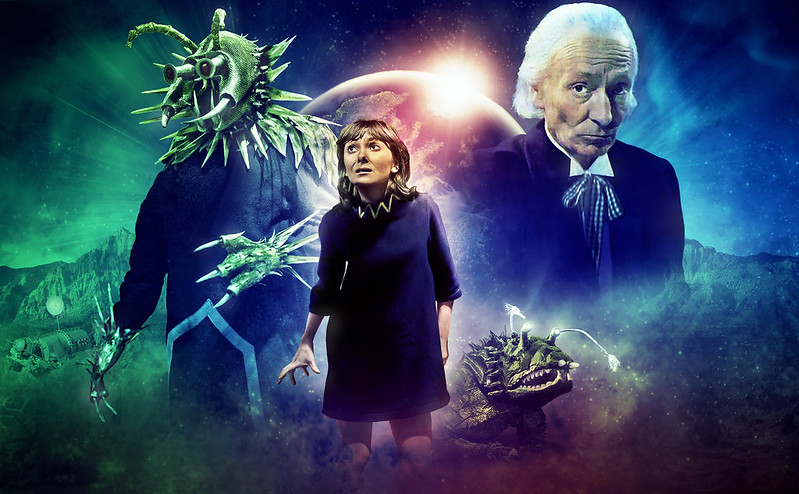
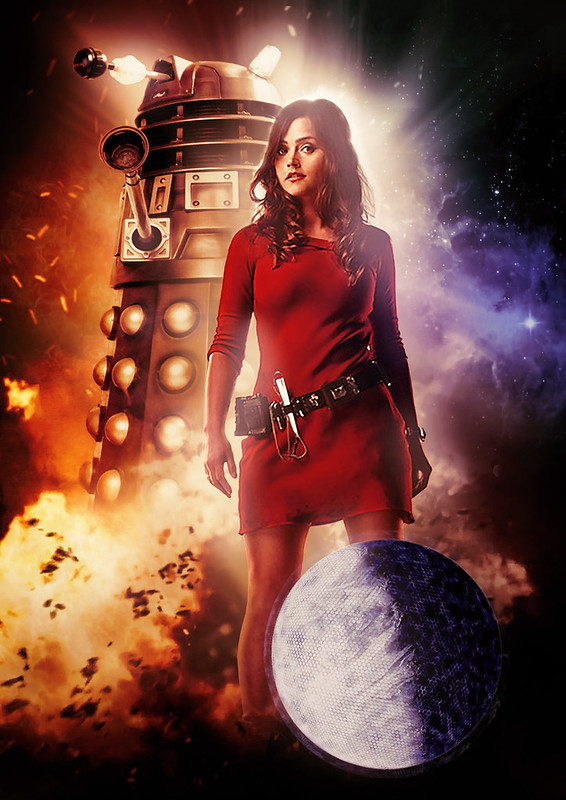
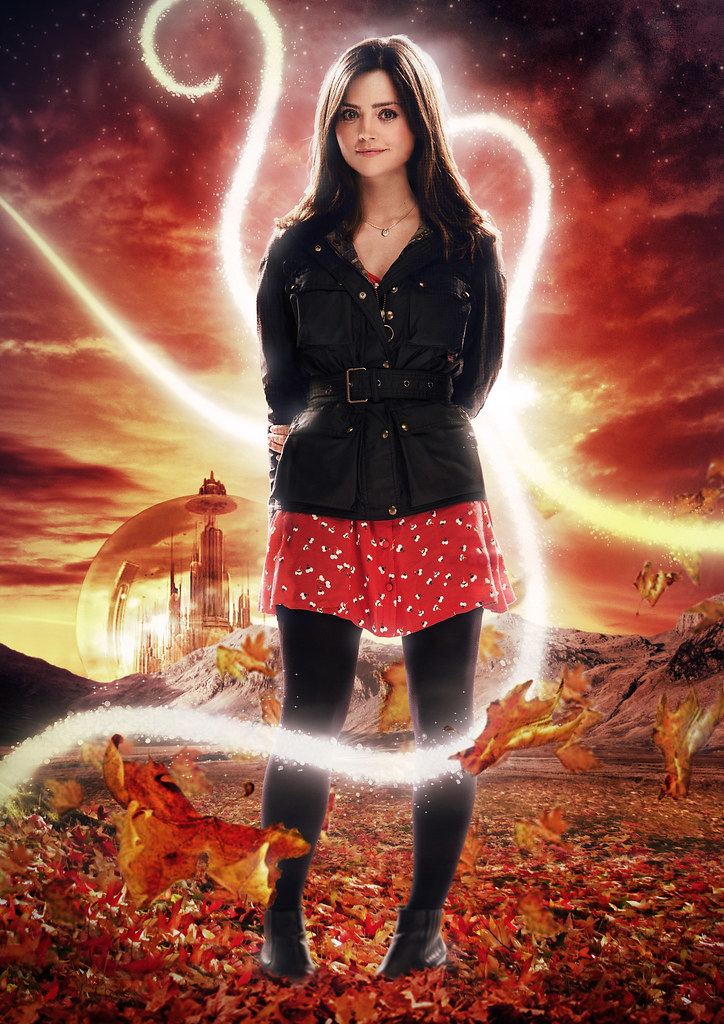
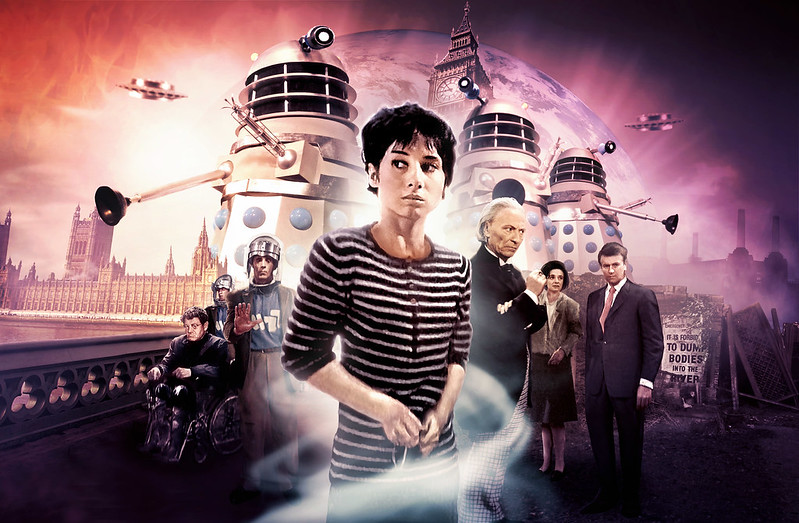


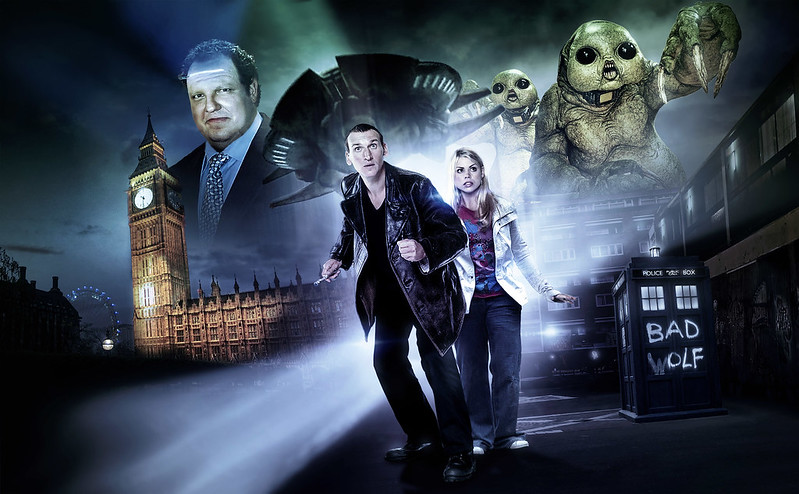
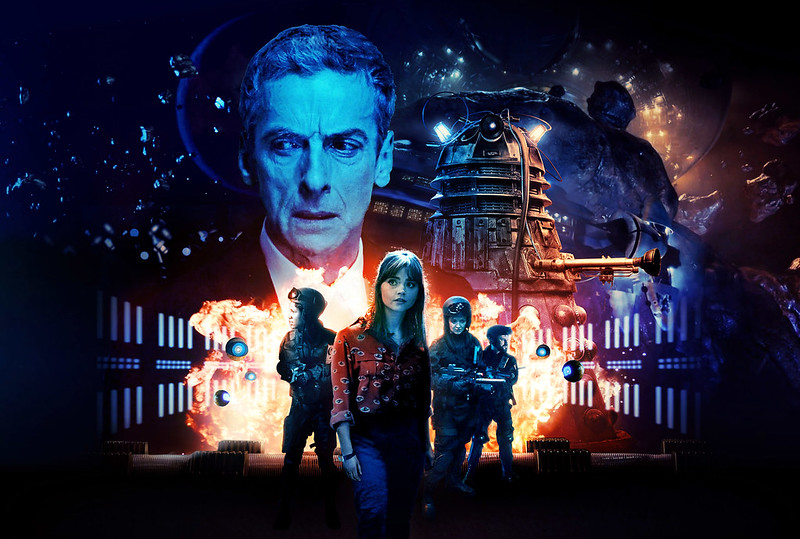
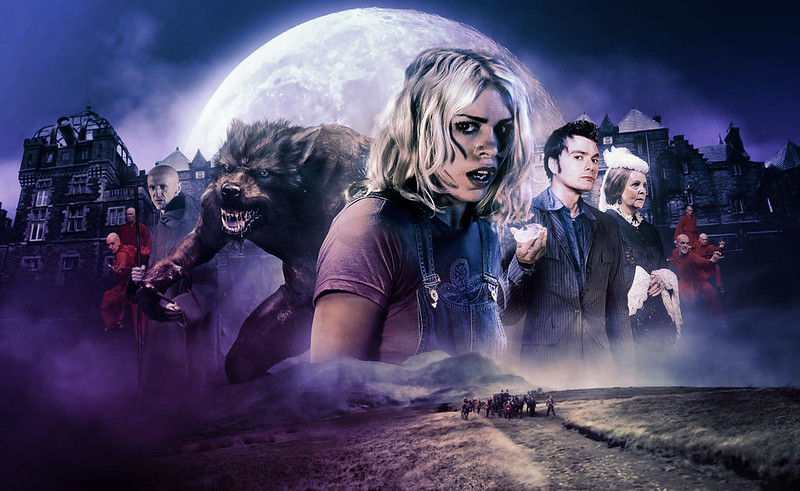
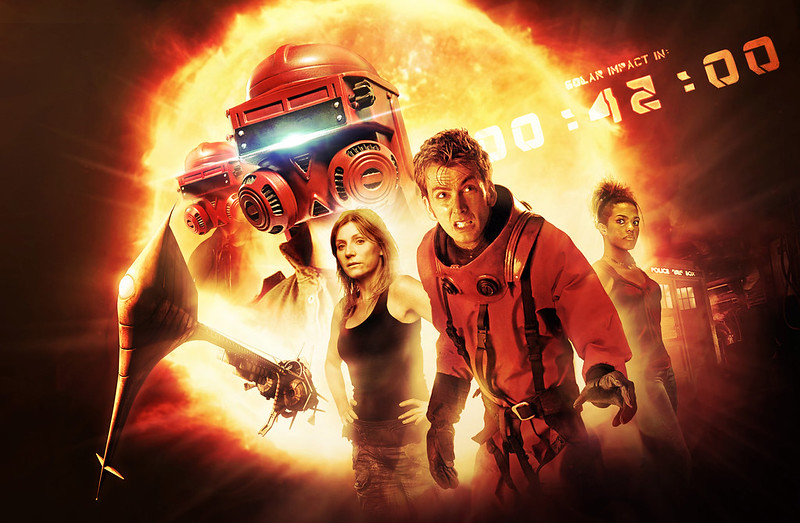
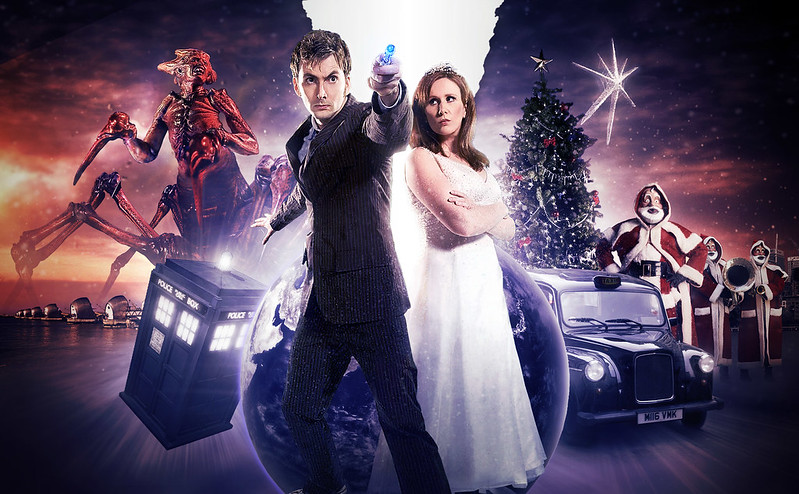

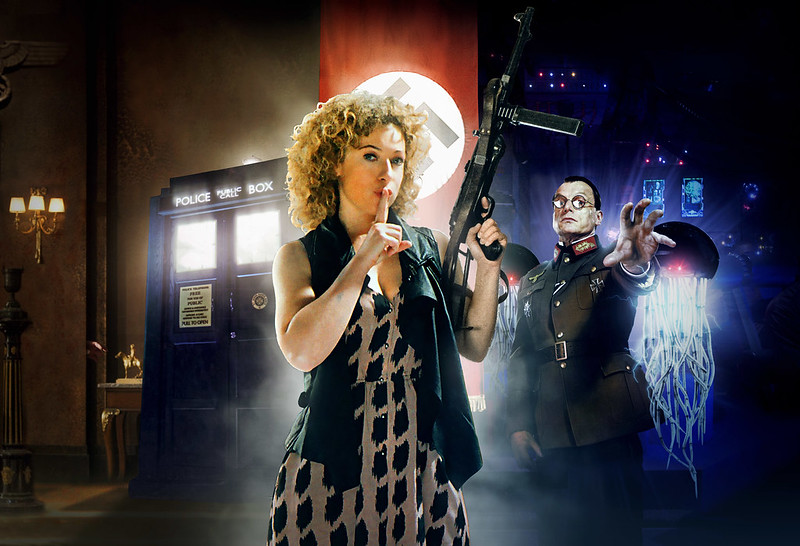
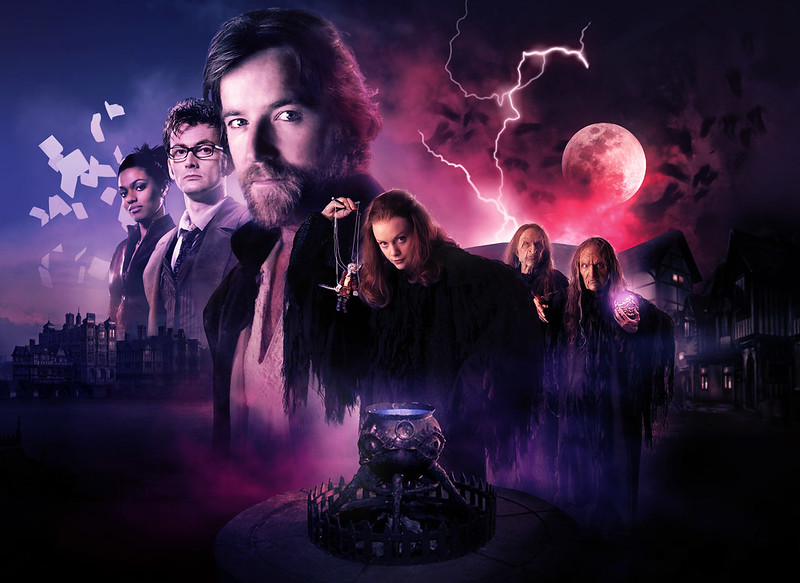
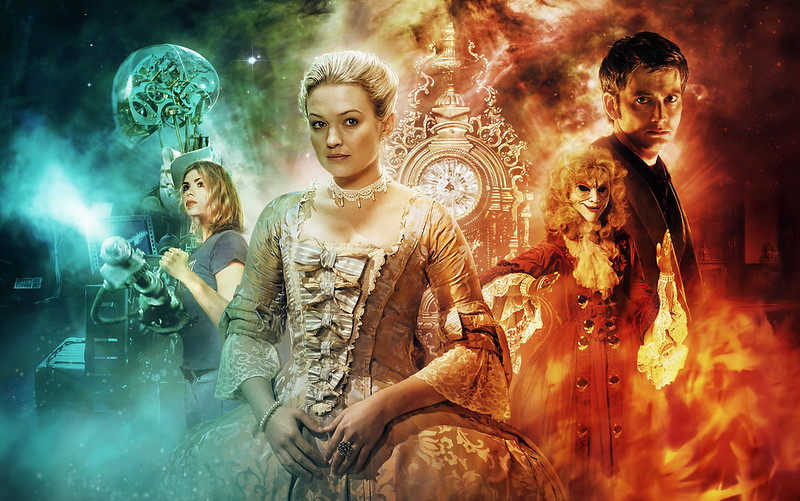
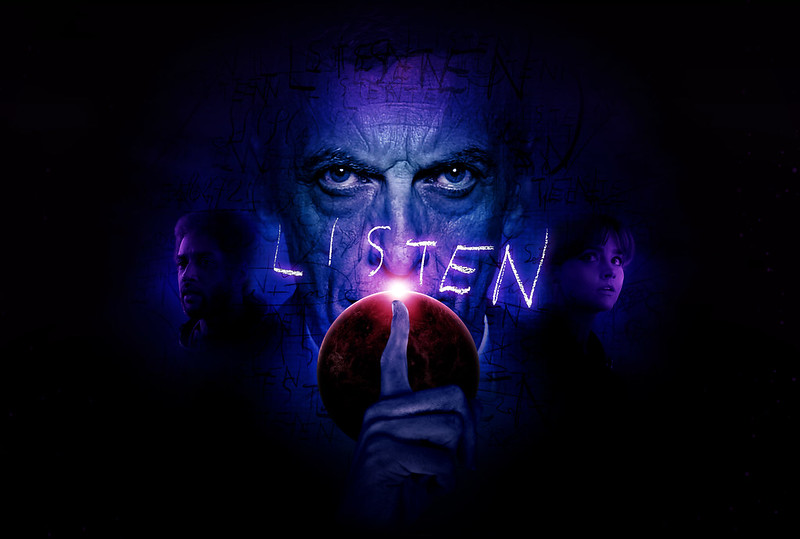
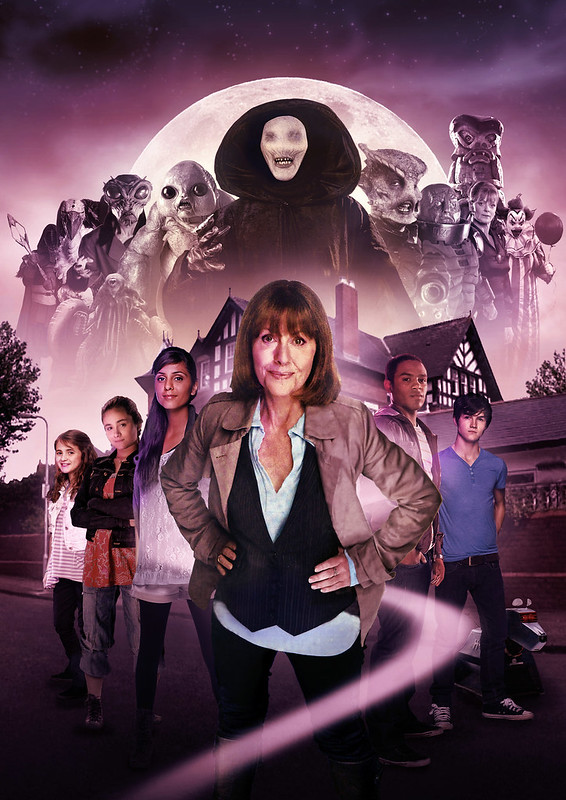
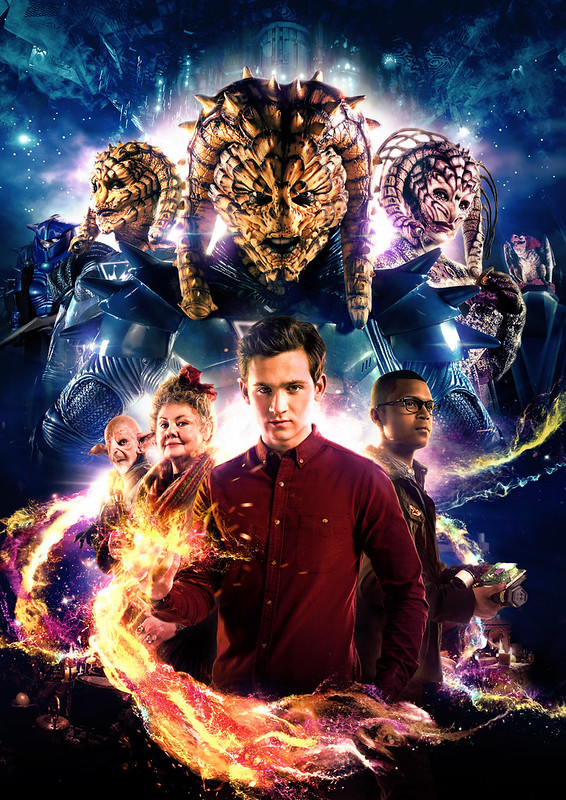

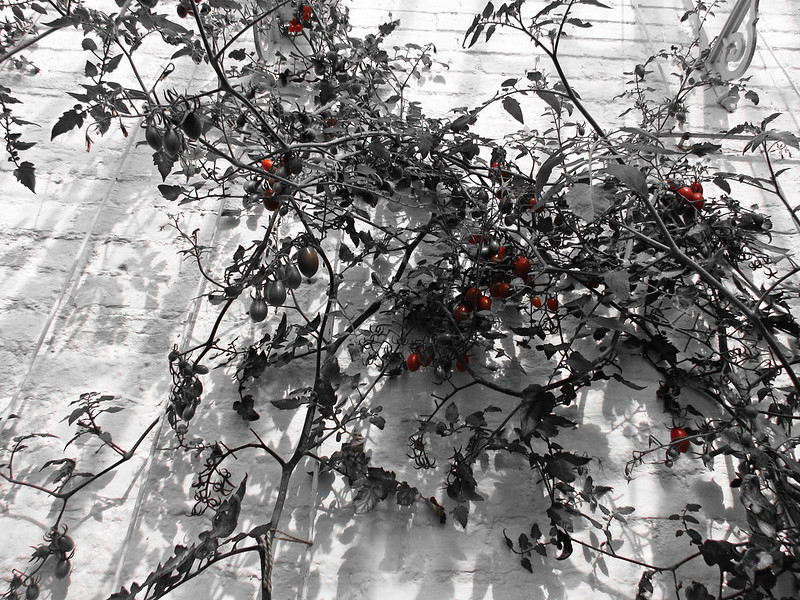



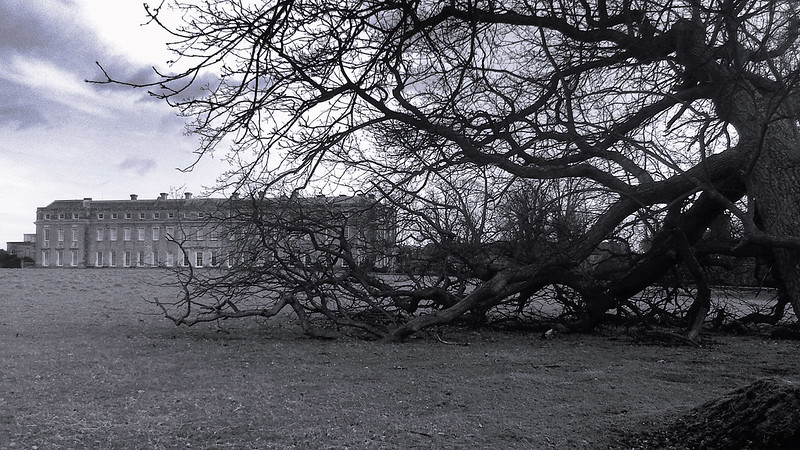




































 Open up this improbably titled book - after staring at the gorgeous wraparound cover with all the characters brought to life - and you'll see a contents page, or rather, a timeline. Unlike the main (nine or ten) novels, this are the stories inbetween those blockbusting adventures. Short stories!
Open up this improbably titled book - after staring at the gorgeous wraparound cover with all the characters brought to life - and you'll see a contents page, or rather, a timeline. Unlike the main (nine or ten) novels, this are the stories inbetween those blockbusting adventures. Short stories!